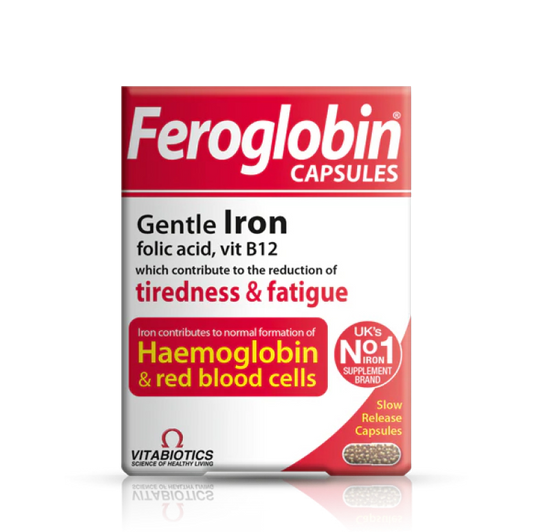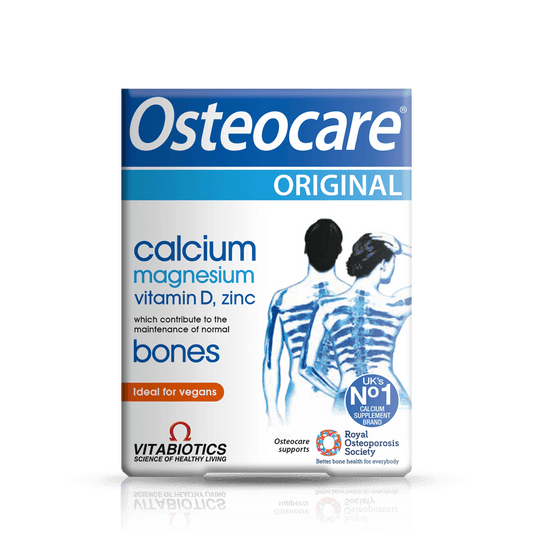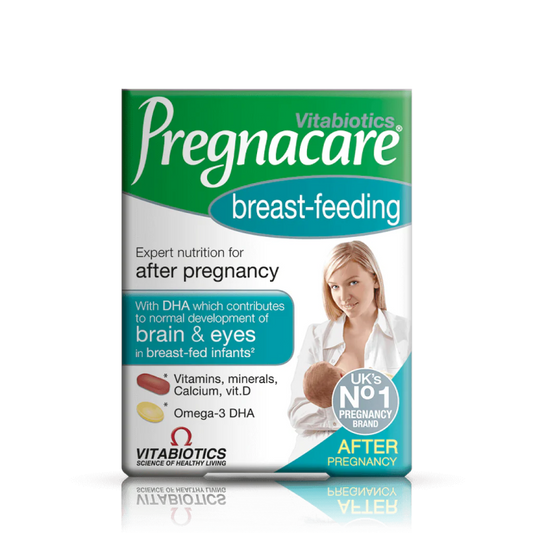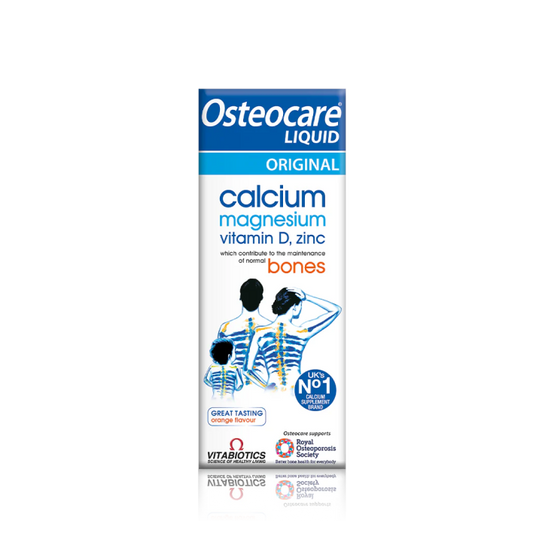Iodine is a trace element that plays an extremely important role in the proper functioning of the human body. In recent years, interest in dietary supplements, including iodine, has increased. However, before we reach for additional sources of this trace element, it is worth understanding what role it plays in our body, what are the benefits and risks associated with its supplementation, and who can benefit the most from it.
The key role of iodine in the human body
The primary function of iodine is its indispensability for the synthesis of thyroid hormones : thyroxine (T4) and triiodothyronine (T3). Importantly, iodine makes up more than half of the mass of these hormones. The thyroid gland is a gland that stores 70 to 80% of the total iodine content in the body. Thyroid hormones regulate many key metabolic processes, including metabolic rate, energy production, and body temperature. They also affect protein synthesis and enzymatic activity. Thyroid hormones play a fundamental role in regulating metabolism, influencing the rate at which food is converted into energy.
Iodine is also extremely important for the proper development of the central nervous system and brain function , especially in children during the fetal period and early childhood. Iodine deficiency in pregnant women can have serious consequences for the developing fetus, leading to developmental disorders, growth retardation, and even intellectual disability. Iodine is essential for the production of neurotransmitters, and its deficiency can reduce higher brain functions, such as the ability to learn, remember, and associate, as well as lower IQ.
In addition to its key role in thyroid function and brain development, iodine may have other important functions in the body. Studies suggest that it may support the immune system and act as a powerful antioxidant by neutralizing free radicals . There is also evidence to suggest that iodine may play a role in alleviating the symptoms of fibrocystic mastopathy. However, it is important to remember that while iodine supports the immune system, excessive iodine intake can lead to immune dysfunction.
What are the benefits of iodine supplementation?
Iodine supplementation can provide many benefits , especially for those who are deficient in it. First of all, it helps maintain proper iodine levels in the body, which is necessary for optimal thyroid hormone production. Supplementation can prevent hypothyroidism, especially when it is caused by iodine deficiency. Iodine plays a key role in the production of thyroid hormones , which regulate many metabolic processes.
Adequate iodine intake also supports cognitive functions, improving memory, concentration and learning ability in both children and adults. Long-term iodine deficiency can negatively affect brain development in children, and supplementation can improve their reasoning abilities.
Iodine supplementation is especially important during pregnancy and breastfeeding . Providing adequate iodine is crucial for the proper development of the child's brain and nervous system. Iodine deficiency during this period can lead to serious developmental disorders. Organizations such as the American Thyroid Association and the American Academy of Pediatrics recommend iodine supplementation for women planning a pregnancy, who are pregnant, and who are breastfeeding.
In some cases, high-dose iodine supplements may help reduce pain and other symptoms associated with fibrocystic mastopathy , although further research and consultation with a doctor are needed. Studies suggest that iodine supplements can reduce breast pain and lumps. There is also a potential role for iodine in preventing some types of cancer and in the treatment of thyroid cancer, where a radioactive isotope of iodine is used. It is worth noting, however, that radioactive iodine used to treat thyroid cancer is different from regular iodine supplementation.
You may be interested in: Pregnacare - vitamins and supplements for pregnant women
Recognizing iodine deficiency: what to look for?
Iodine deficiency can manifest itself in a variety of symptoms, both in adults and children:
- In adults , the most common symptoms include chronic fatigue and weakness, weight gain, feeling cold, constipation, dry skin and hair, and problems with concentration and memory. One of the characteristic signs of iodine deficiency is goiter, or an enlarged thyroid gland, visible as a swelling in the neck. Early symptoms may also include memory and concentration problems.
- In infants and young children , iodine deficiency may manifest itself as frequent choking, enlarged tongue, swollen face, constipation, low muscle tone and excessive sleepiness.
- In older children and adolescents , there may be delayed development, slower mental development, and lower than average height. Worrying symptoms in children include delayed teething and growth disorders.
Long-term iodine deficiency can lead to serious complications, such as fertility problems, pregnancy problems (miscarriages, stillbirths, premature births), and an increased risk of autoimmune thyroid disease and some cancers . Iodine deficiency during pregnancy is particularly dangerous, as it can cause miscarriages, stillbirths, and birth defects in the baby.
How much iodine should you consume daily, depending on age group?
Iodine requirements vary with age and physiological condition. The following table shows the recommended daily allowance of iodine (RDA) in micrograms (µg) for different age groups and conditions:
|
Age Group / Status |
Recommended daily intake (µg) |
Tolerable Upper Intake Level (µg) |
|
Babies 0-6 months |
110 |
Not established |
|
Babies 7-12 months |
130 |
Not established |
|
Children 1-3 years |
90 |
200 |
|
Children 4-8 years old |
90 |
300 |
|
Children 9-13 years old |
120 |
600 |
|
Youth 14-18 years old |
150 |
900 |
|
Adults |
150 |
1100 |
|
Pregnant women |
220-250 |
1100 |
|
Breastfeeding women |
270-290 |
1100 |
Sources provide slightly different values, reflecting the evolution of dietary guidelines. The values provided are general recommendations, and individual needs may vary. Therefore, it is recommended to consult a physician or dietitian. Tolerable Upper Intake Levels (UL) indicate the maximum amount of iodine that is unlikely to cause adverse health effects in most people.
What are the dangers of iodine overdose?
Although iodine is essential, too much of it can also be harmful. Too much iodine can lead to thyroid dysfunction , including hyperthyroidism or hypothyroidism. The Wolff-Chaikoff phenomenon describes a situation in which too much iodine can temporarily inhibit thyroid hormone synthesis. Symptoms of iodine overdose can include:
- metallic taste in the mouth
- diarrhea
- excessive salivation
- nausea
- vomiting
- stomachache
- in more serious cases, even more serious health consequences
There are also concerns that excess iodine may increase the risk of thyroid cancer in susceptible individuals.
Iodine supplementation may also interact with certain medications, such as antithyroid drugs, ACE inhibitors, and potassium-sparing diuretics. Caution should also be exercised when taking lithium with certain heart medications. Examples include ACE inhibitors such as benazepril, lisinopril, and fosinopril, and potassium-sparing diuretics such as spironolactone and amiloride. Other potential side effects include gastrointestinal discomfort, allergic reactions, and skin rashes . Iodine supplementation is contraindicated in individuals with hyperthyroidism, nodular goiter, suspected thyroid cancer, and Hashimoto's disease. In individuals with Hashimoto's disease, especially if selenium deficiency is present, excess iodine may be harmful.
Who might benefit most from iodine supplementation?
Iodine supplementation may be beneficial for certain groups of people. This is primarily true for people who have been diagnosed with iodine deficiency based on medical tests. Pregnant and breastfeeding women have an increased need for iodine, which is why supplementation is often recommended during these periods. Vegans and vegetarians, due to the limited sources of iodine in a plant-based diet, may also consider supplementation . People living in areas where the soil is poor in iodine may be more susceptible to deficiencies and benefit from supplementation. Iodine supplementation may also be indicated for people with hypothyroidism caused by a deficiency of this element. It is worth remembering that people who do not use iodized salt are more susceptible to iodine deficiency.
Overview of available forms of iodine supplements
There are various forms of iodine supplements available on the market. The most popular is potassium iodide, which is easily absorbed by the body. Another available compound is sodium iodide. Also popular are supplements based on seaweed, such as kelp, which is a natural source of iodine. Lugol's iodine, which is a solution of potassium iodide and iodine, is sometimes used to support the thyroid gland . There is also so-called atomic iodine (nascent iodine), which is advertised as an easily absorbed and highly active form of iodine. Iodine is often an ingredient in multivitamins and prenatal supplements. It is worth knowing that in nature and in food sources, iodine occurs mainly in the ionic form as iodide (I-), not as molecular iodine (I2).
Natural sources of iodine in your diet
The best way to ensure an adequate supply of iodine is to eat a balanced diet rich in natural sources of this element. Foods rich in iodine include:
- sea fish (cod, tuna, salmon, shrimp, oysters, halibut, pollock, crabs, scallops, squid)
- dairy products (milk, yogurt, cheese, cottage cheese)
- eggs (especially yolks)
- seaweed (nori, kelp, wakame, kombu)
- iodized salt , which is a common source of iodine in many countries
- vegetables and fruits (spinach, broccoli, green peas, bananas, strawberries) - iodine content may vary depending on soil conditions
It is worth remembering that processed foods rarely contain iodized salt, and special types of salt, such as sea salt or kosher salt, are usually not iodized.
This may be useful to you: Wellkid - vitamins for children in a tasty form
Summary and Important Tips for Iodine Supplementation
Iodine is an essential trace element, crucial for proper thyroid function and body development. Iodine supplementation may be beneficial in certain cases, but should always be done after consulting a doctor. The best way to maintain adequate iodine levels is to eat a balanced diet rich in natural sources of this element. It is also important to remember that excess iodine can be harmful, so it is important to follow the recommended daily doses. It is always a good idea to consult a doctor before starting an iodine supplement to ensure it is safe and appropriate for your individual health needs.










